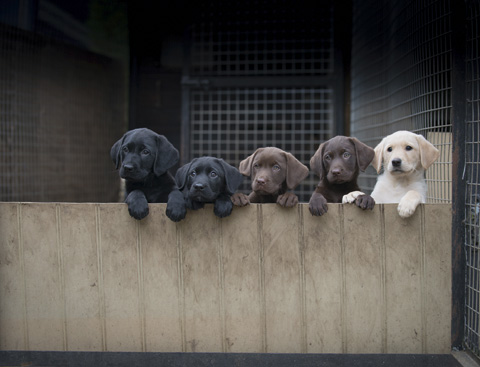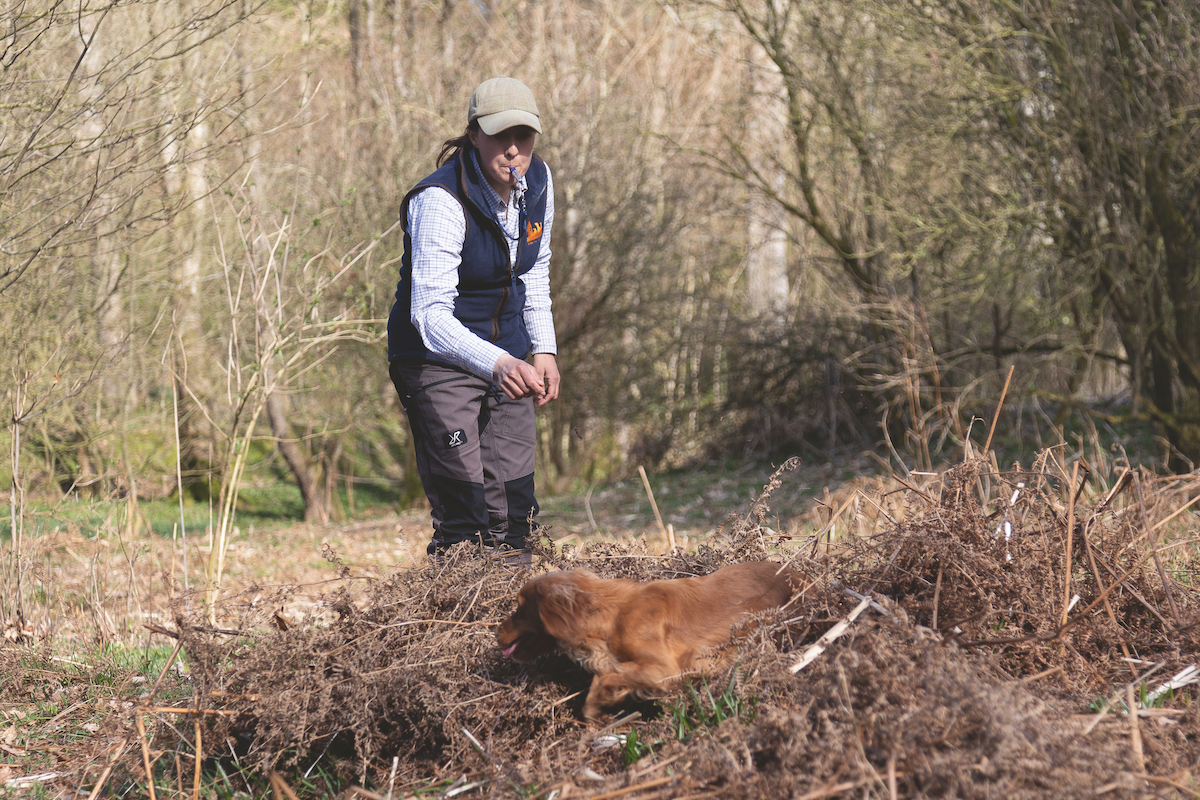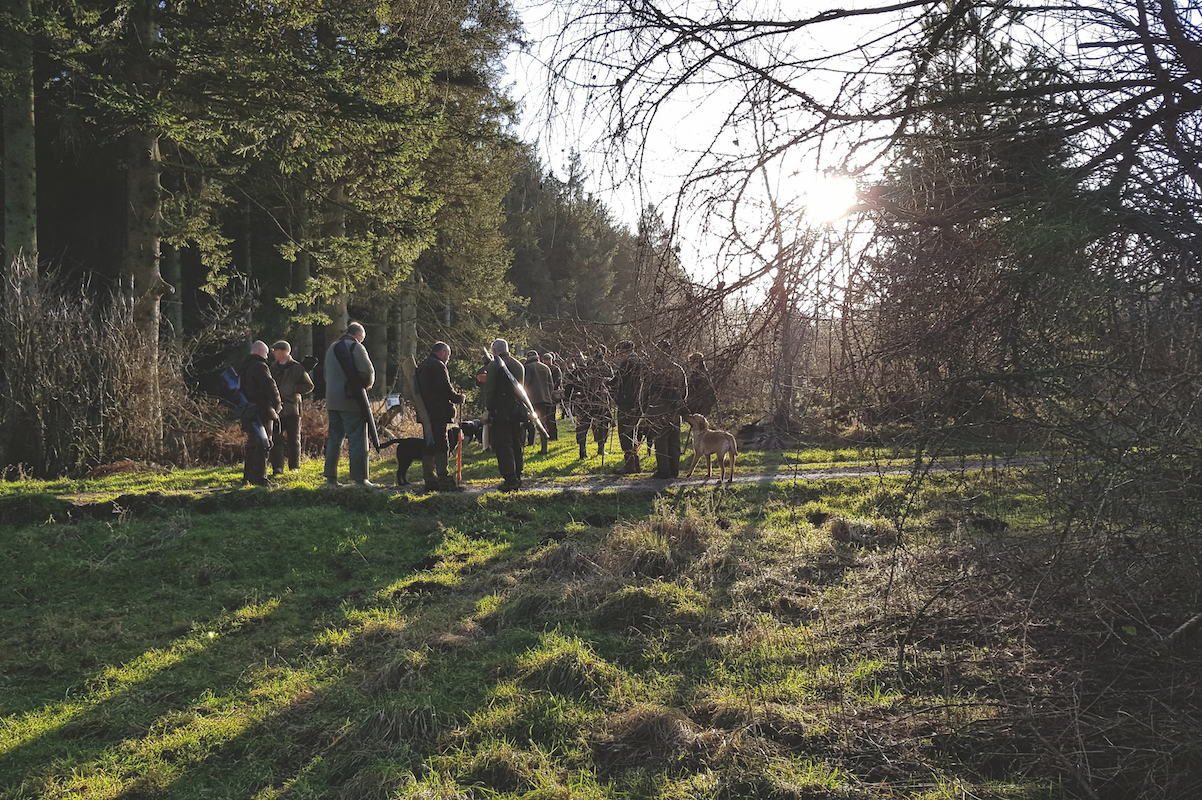Why ‘play-training’ is crucial for gundog puppies
'Play-training' is a key part of training your puppy as a working gundog
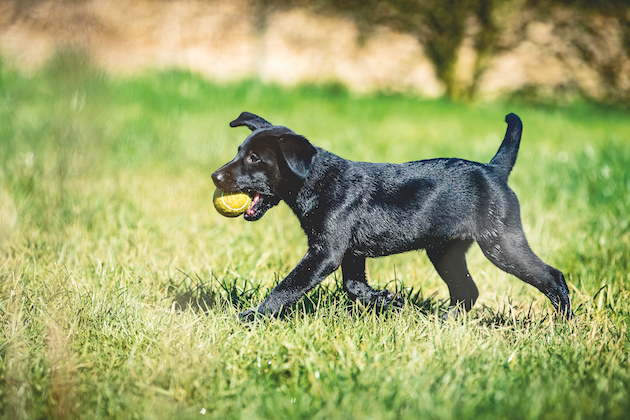
Tennis balls can be used carefully for gundog puppy training
Handling your gundog puppy gently is a crucial part of its development, which is why play-training gundog puppies is so important.
In fact, you need to be emphasising training as soon as the new pup is confidently and happily settled in its new surroundings. Which is not to say that you need to pile on the pressure from that moment on. Far from it. Do that and you could sap the dog’s confidence and inhibit it for the rest of its life.
What you need to do is focus on making the training fun so the puppy looks forward to it – so it’s really play-training.
Tips for play-training gundog puppies
Always try to keep a young spaniel puppy within 10 yards of you at all time. The reason why is straightforward. It’s easier to teach them to go out further on a retrieve later on than to have to run them down every five minutes because they have gone too far!
When the puppy goes beyond the 10 yard limit crouch down to make yourself seem small, and call the pup’s name to get its attention.
At some point the puppy will ignore your call. At this point you must rush over and give him a gentle poke with your finger to get his attention. Now back away, calling his name and encouraging him to come to you. When he does come back, give him lots of fuss as a reward.
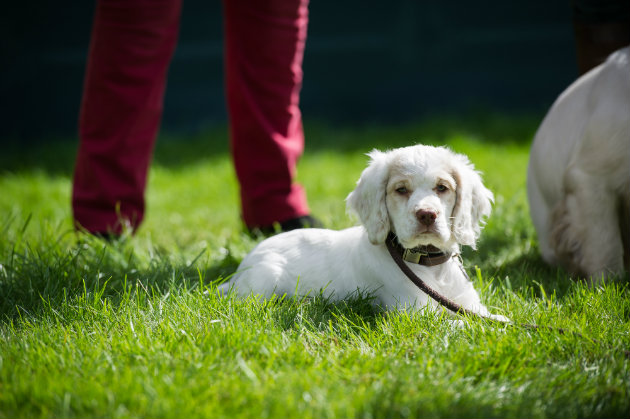
Keep a spaniel puppy close to you during training
Retrieving instinct in spaniels
With spaniels, especially those with a softer temperament, you need to consider the retrieving aspect. A spaniel’s instinct is generally balanced – on one side, the instinct to hunt and on the other, the instinct to retrieve. If you overstimulate one the other may become a great deal weaker. If a puppy is allowed to hunt too much as a youngster, as it grows older it might not be that keen to retrieve.
On the other hand, if you give a puppy too many retrieves in the open then you may find it believes that everything exciting simply comes out of your pocket or bag. In this case they won’t be inclined to hunt but will just walk along watching your hands to see if you are going to produce a retrieve.
Use your common sense. Make sure you practice hunting and retrieving in equal proportions as the puppy’s training progresses.
Retrieving instinct in Labradors
With retrievers it’s slightly different. We need them to be confident to run out quite considerable distances to pick retrieves. As such, I don’t worry too much about a retriever going off from me as long as it comes back immediately when I call. In fact, I generally throw retrieves for a young Labrador puppy two to three times further away than I would for a spaniel puppy.
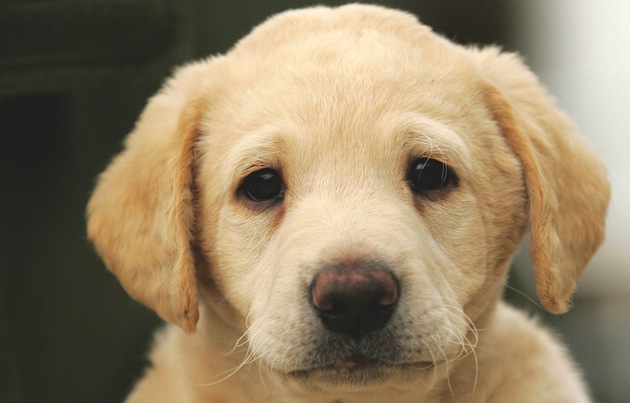
In the home
If your puppy is living in a home environment, always be wary of discouraging it from picking up items simply because you don’t want him to. The puppy won’t know his latest pick up is one of your best shoes, for instance!
If you go down this road – discouraging the puppy when it picks up something ‘wrong’ – it can have dire consequences in later life. It might put off the dog from retrieving altogether, or it may develop the habit of taking the retrieve and hiding it through fear of getting a telling off.
Instead, try to manage the home effectively, simply place any items that you do not want him to pick up out of his reach. That said, every time he does pick up something in the home you should encourage him to bring it to you. You then have a choice. You can either take it from him (and put it out of his reach) or, if it’s something he’s allowed to have, take it from him before giving it back.
Another problem we often encounter is that everyone wants to pick up puppies to fuss them. This should be discouraged from the start. You should instruct people that if they want to fuss the puppy they should go down to his level, gently push his bum so he goes into the sitting position and then calmly stroke him.
This will encourage the puppy to come and sit in front of a person for attention rather than leaping at them. This will also be the start of teaching the young puppy to sit on command without being too overbearing about it.
Practising hunting skills
As your puppy matures, both mentally and physically, you’ll find you’re able to take him out into some rough grass to practice his hunting skills. If your puppy is a keen retriever, try hiding a few tennis balls in the grass before you take him out and then encourage him (from the down-wind side) to search and find them. This will give the puppy the reward he needs for hunting.
If you find the puppy becomes wise and starts to pull too far away from you, it’s quite easy to drop a tennis ball next to you when he is away from you and not looking. Then call him back and encourage him to hunt close to you to find the new tennis ball. This will prove to the puppy that you obviously know where things are and it’s well worth coming back to you when called to get the reward of the retrieve.
On the other hand, if your dog were not a particularly keen retriever, I would divide your outings into two parts. The first part should be in a plain, boring area – a concrete alleyway, for example – so that the most exciting thing is the retrieve and you.
Time spent practising in this ‘uninteresting’ area should improve the retrieving instinct. This will pay dividends at the second part of your training outing, which is retrieving in rough, wide-open spaces.
Healthy puppy: is my gundog puppy from good stock?
I have ordered a labrador puppy from one of our shoot’s pickers-up. What health checks should I be aware of?
How to buy a gundog puppy
Gundog puppy: A good gundog puppy doesn’t come cheap but cutting corners could be costly.
If you find your puppy is reluctant to pick up tennis balls, we’ve found using a variety of small, soft children’s toys/teddies can often tempt the puppy into retrieving. If you find your puppy is constantly picking up sticks when you’re out hunting, we find the best policy is to accept their ‘retrieve’ and simply drop the stick when the puppy isn’t looking. This habit isn’t really a big problem, though, and will generally subside with maturity.
Avoiding bad habits
If you practice a good delivery with every retrieve right from the start, you’ll find no bad habits are introduced and the overall quality of delivery will improve with time. With some of our puppies we encourage them to jump up onto us with the tennis ball – this will instigate a good delivery in later training.
Another useful trick is to make yourself small by sitting on the ground, but always remember to try and stroke the dog before taking the retrieve.
At this stage you should also remember not to make the retrieving specific to a particular type of dummy or ball. You should always try and vary what the puppy will retrieve by using several different types of small articles and dummies.



